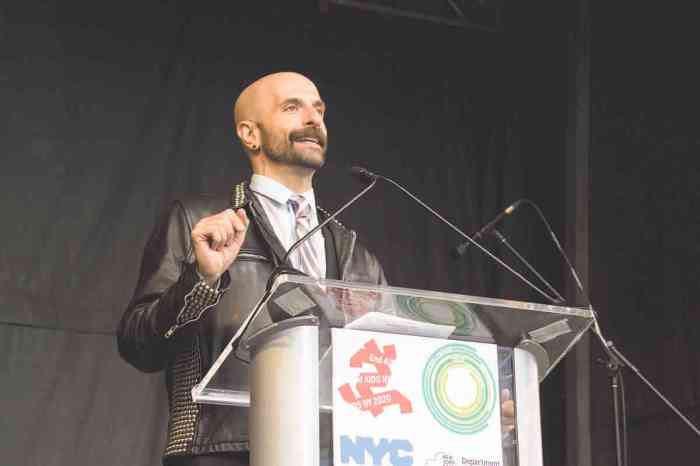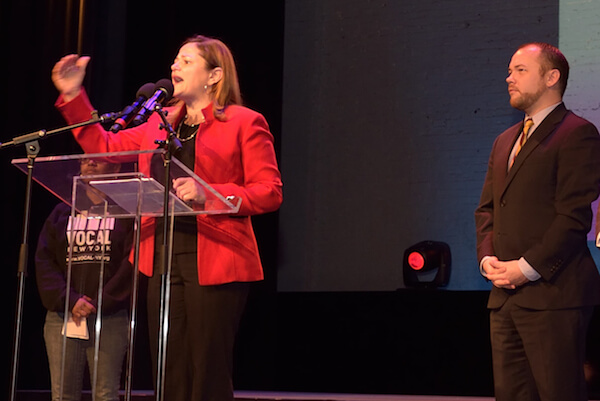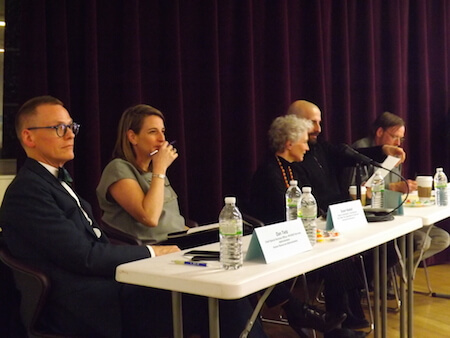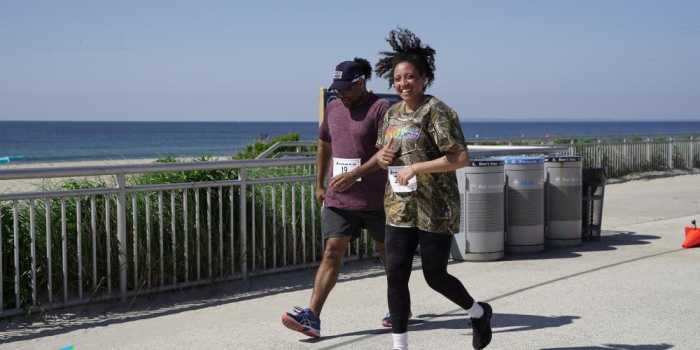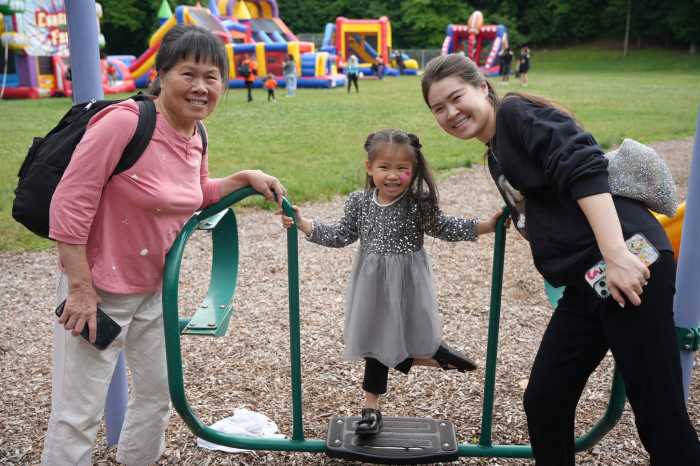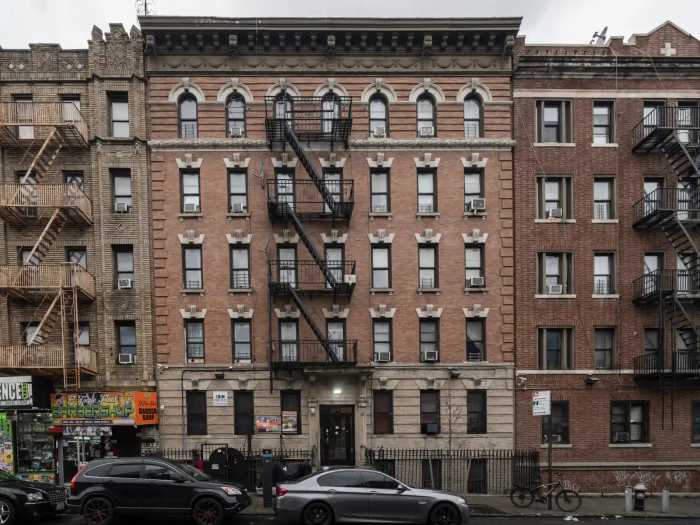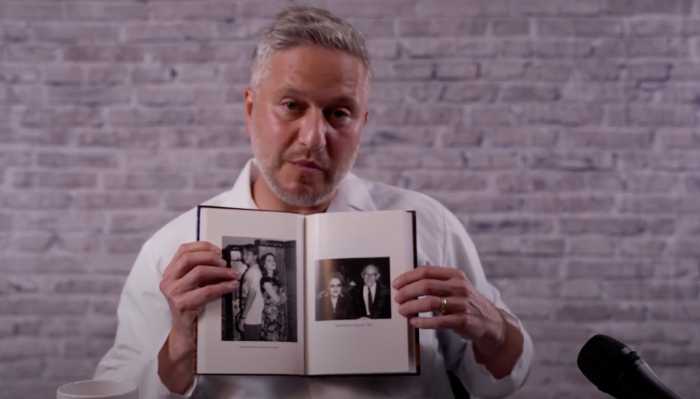For the first time, Dr. Thomas Farley, the city's health commissioner, has added his voice to the recommendation that gay and bisexual men get vaccinated.
Citing four new meningitis cases among gay and bisexual men in New York City since the start of 2013, the city’s health department is recommending that all men who “regularly have intimate contact with other men met through a website, digital application, or at a bar or party” get vaccinated for the bug.
“Meningitis symptoms usually come on quickly, and the disease can be fatal if not treated right away,” Dr. Thomas Farley, the city’s health commissioner, said in a March 6 statement. “Vaccination is the best defense. I urge all men who meet these criteria, regardless of whether they identify as gay, to get vaccinated now and protect themselves from this disease before it is too late.”
The health department first noted the meningitis outbreak on September 27 of last year in a media alert that reported four cases of “invasive meningococcal disease” among gay and bisexual men in the prior four weeks. At that time, the department recommended that any HIV-positive man who had had recent sex with another man get vaccinated.
A separate alert that was sent to healthcare providers that day reported on 12 cases occurring since 2010. Four of those men had died. One case occurred in 2010, three occurred in 2011, and eight in 2012. Eight of the men were HIV-positive.
The total number of cases since 2010 has now climbed to 22 with 17 of those cases occurring since the start of 2012. Three of the five most recently infected men died, and there have been seven fatalities altogether since 2010.
While a senior health department official said in October that the agency wanted to vaccinate 10,000 men, the agency only purchased 4,000 vaccine doses in 2012, according to health department documents obtained by Gay City News under the state Freedom of Information law. The health department assembled a network of private and city clinics, public and private hospitals, and other providers to execute its vaccine campaign.
“The estimate of 10,000 was based on HIV-infected men who live in New York City and met the ‘high risk’ criteria included in our announcement,” a health department spokesperson wrote in an email in January. “HIV-infected men in New York City have access to HIV primary care, and primary care providers can be reimbursed for meningococcal vaccination. The Department’s vaccination purchase was meant to support non-Department facilities that needed a small supply of vaccine while they ordered their own vaccine and to supply Department-operated clinics for sexually transmitted diseases and immunizations.”
Asked on March 6 if it would be purchasing more vaccine, a health department spokesperson wrote, “We have ample vaccine available and do not need to purchase additional vaccine at this time.”
The 4,000 doses were purchased in early October. The department had distributed all but 1,765 doses to a network of 34 healthcare providers across the city by November 8. As of January 28, the department estimated that 4,022 people had received a first dose of the two-dose vaccine.
“This is likely an under-estimate, because providers are not required by law to report adult vaccinations to the Department of Health and Mental Hygiene; we rely on voluntary reports from many, but not all, large volume outpatient clinics,” the spokesperson wrote.
City Council Speaker Christine Quinn echoed the health department's advisory on vaccination. | DONNA ACETO
The March 6 statement included quotes urging men to get vaccinated from City Council Speaker Christine Quinn, an out lesbian who represents Chelsea and the West Village, five other members of the City Council, and Marty Markowitz, the Brooklyn borough president. This is also the first time that Farley, the health commissioner, has been quoted in any meningitis alert.
Asked via email if they were endorsing the health department’s approach or if the City Council would produce additional funds for more vaccine, the elected officials either declined to comment, did not respond, or referred questions to the health department or to the City Council press office, which simply reissued Quinn’s quote from the original statement.
“The City Council is working with the Health Department to make sure that New Yorkers know how to protect themselves from invasive meningococcal disease,” Quinn said. “While the rise in cases of the disease commonly known as meningitis is concerning, particularly for men who are HIV-positive or who have sex with men, vaccines and treatments are available. The City is also offering information and resources on the web and through 311. The Council will work to ensure that the public is educated about this disease and the increased risk so that New Yorkers are armed with the information they need to protect themselves and their loved ones.”
Toronto and Chicago had smaller meningitis outbreaks among gay and bisexual men and responded faster with vaccine campaigns. Toronto’s campaign was comparable to New York City’s at 3,850 vaccinations that were completed in 25 days. Chicago distributed 14,267 vaccinations in eight days. Both cities reported no new cases after their campaigns.
Among infections in New York City’s current outbreak that were analyzed, the health department, in its September 27 alert, noted that “6 of 7 infections are related to a strain of N. meningitidis that was responsible for the 2006 outbreak in New York City.”
That earlier outbreak was among injecting drug users in Central Brooklyn, with 23 reported cases and seven deaths. Between June 28 and September 30 of that year, the health department vaccinated 2,763 people. An additional three cases were seen after that campaign.



